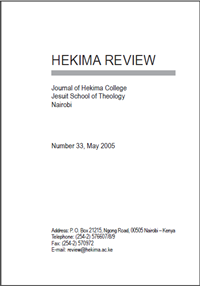The Sacrament of Penance as A Means of Social Reconciliation
Keywords:
Penance, African People, Reconciliation, Socio-ethical, ConfessionAbstract
The Second Vatican Council called for a revision of the rite and formulae of Penance “so that they more clearly express both the nature and the effect of the sacrament.” Given the historical discoveries of the time, the Council bishops had admitted “that the practice of penance had changed in the past and so it could change again in the
present. But they said nothing specific about the direction that change should take.” This omission, seemingly deliberate, was probably meant to leave room for the change to be shaped by the experiences of people. If this was the case, then the experiences of the African people (such as those of apartheid in South Africa, genocide in Rwanda, etc.), the contemporary rediscovery of the social aspect of every sinful act and, more specifically, the experience of the South African Truth and Reconciliation Commission (henceforth TRC) have something to contribute to the called-for change. The need, as articulated by Archbishop Desmond Tutu, of rehabilitating the victim and the perpetrator of evil can help in the revision of the practice of Penance.
Downloads
Downloads
Published
Issue
Section
License
Copyright (c) 2024 Hekima Review

This work is licensed under a Creative Commons Attribution-ShareAlike 4.0 International License.


